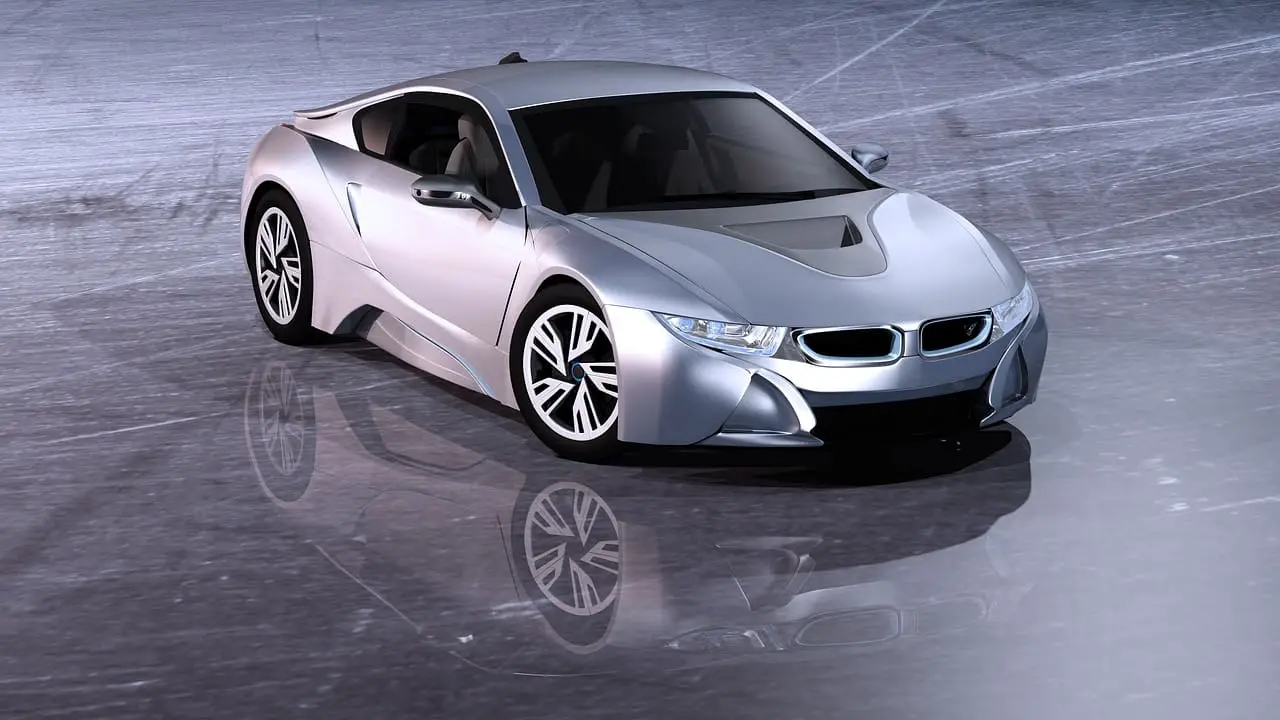Picture yourself cruising down the open road, the wind in your hair and not a care in the world. Now, imagine that instead of the roar of an engine, you are gliding silently past stunning landscapes in a sleek and eco-friendly Ford electric vehicle. Exciting, isn’t it? Well, get ready, because the future of Ford electric vehicles is even more promising than you might imagine. With a commitment to sustainability and cutting-edge technology, Ford is set to revolutionize the automotive industry and transform the way we think about electric mobility. From increased range and faster charging to innovative features and stunning design, the future of Ford electric vehicles is about to turn heads and make a lasting impact on the world.
Overview of Ford’s Electric Vehicle Strategy
Ford Motor Company is committed to leading the way in the electric vehicle (EV) market by embracing electrification as a key component of its future strategy. With a focus on sustainability and innovation, Ford aims to provide consumers with a wide range of electric vehicle options that meet their needs for efficiency, performance, and affordability.
Ford’s Commitment to Electrification
Ford’s commitment to electrification is evident in its investment in research and development, as well as the production of electric vehicles. The company recognizes the importance of reducing carbon emissions and aims to contribute towards a greener future.
Current Lineup of Electric Vehicles
Ford currently offers several electric vehicle models, including the Mustang Mach-E, the all-electric version of the iconic Mustang, which combines performance and style with zero emissions. The Ford F-150 Lightning, an all-electric version of America’s best-selling truck, is set to revolutionize the pickup truck market with its power, versatility, and environmentally friendly design.
Plans for Future Electric Models
Ford has ambitious plans for expanding its electric vehicle portfolio in the coming years. The company aims to invest billions of dollars in electric vehicle production and plans to introduce new electric models across various segments, including SUVs, trucks, and commercial vehicles. This commitment to electrification demonstrates Ford’s dedication to providing customers with a diverse range of sustainable and efficient transportation options.
Advancements in Electric Vehicle Technology
Over the years, advancements in electric vehicle technology have significantly improved the performance, range, and charging capabilities of electric vehicles.

Improved Battery Technology
One of the most significant advancements in electric vehicle technology is the development of high-capacity batteries. Ford has been investing in research and development to enhance battery technology, resulting in batteries that are more energy-dense, lighter, and more efficient. These advancements allow electric vehicles to travel longer distances on a single charge and offer better overall performance.
Longer Range and Faster Charging
The range of electric vehicles has dramatically improved, eliminating range anxiety for many potential buyers. Ford’s electric vehicles offer competitive ranges, allowing drivers to travel significant distances without worrying about running out of charge. Furthermore, advancements in fast-charging technology have made recharging electric vehicles quicker and more convenient. Ford has been actively working to improve charging capabilities to further enhance the usability and convenience of its electric vehicles.
Integration of Autonomous Driving Features
The integration of autonomous driving features into electric vehicles is another area of advancement in electric vehicle technology. Ford recognizes the potential of autonomous driving and is actively exploring ways to incorporate this technology into its electric vehicle lineup. By combining electric powertrains with autonomous capabilities, Ford aims to revolutionize the way people travel, making it safer and more sustainable.
Impacts of Government Regulations
Government policies and regulations play a crucial role in shaping the electric vehicle market. As countries worldwide strive to reduce carbon emissions, governments have implemented various policies to incentivize the adoption of electric vehicles.
Shifting Government Policies and Regulations
Government policies and regulations related to electric vehicles are constantly evolving. While some countries have established ambitious targets for electric vehicle sales, others are implementing measures to restrict the use of internal combustion engines. Ford closely monitors the changes in government policies and regulations to ensure compliance and adapt its strategies accordingly.
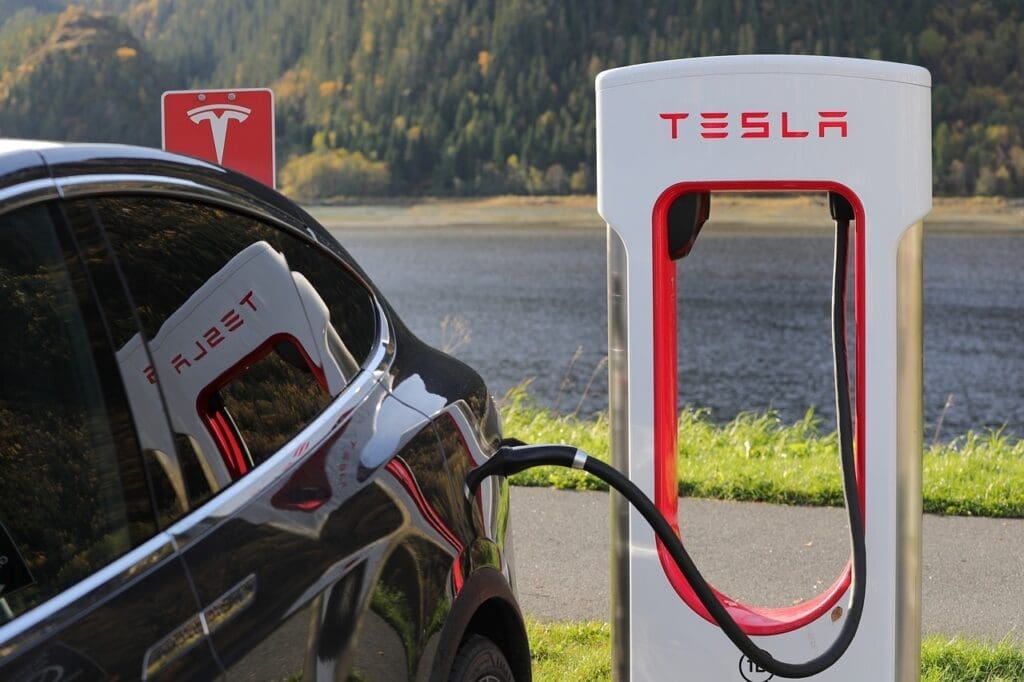
Incentives and Subsidies for Electric Vehicles
Many governments provide financial incentives and subsidies to encourage the purchase of electric vehicles. These incentives can range from tax credits and rebates to reduced registration fees and grants for the installation of home charging infrastructure. Ford takes into account these incentives and subsidies when pricing its electric vehicles to make them more affordable and accessible to a wider range of consumers.
Impact on Ford’s Electric Vehicle Sales
Changes in government policies and regulations can have a significant impact on the demand for electric vehicles. Ford recognizes the importance of aligning its electric vehicle strategy with government initiatives and ensuring its vehicles meet the requirements set by regulations. By staying ahead of regulatory changes, Ford can maximize its market share and continue to be a leader in the electric vehicle market.
Expansion of Charging Infrastructure
As electric vehicle adoption increases, the need for a robust and reliable charging infrastructure becomes paramount. Ford is actively investing in the expansion of charging stations to support the growing number of electric vehicles on the road.
Investment in Charging Stations
Ford recognizes that the availability of a comprehensive charging network is essential to alleviate range anxiety and increase consumer confidence in electric vehicles. As part of its electric vehicle strategy, Ford is investing in the development and installation of charging stations across the United States and in key international markets. These charging stations will be strategically placed along major highways, in urban areas, and at key destinations to ensure easy access for electric vehicle owners.
Partnerships with Charging Network Providers
To expedite the expansion of the charging infrastructure, Ford has partnered with charging network providers. These partnerships aim to leverage the expertise and resources of established charging network operators to streamline the development and operation of charging stations. By working together, Ford and its partners can accelerate the deployment of charging infrastructure and make electric vehicles more convenient for consumers.
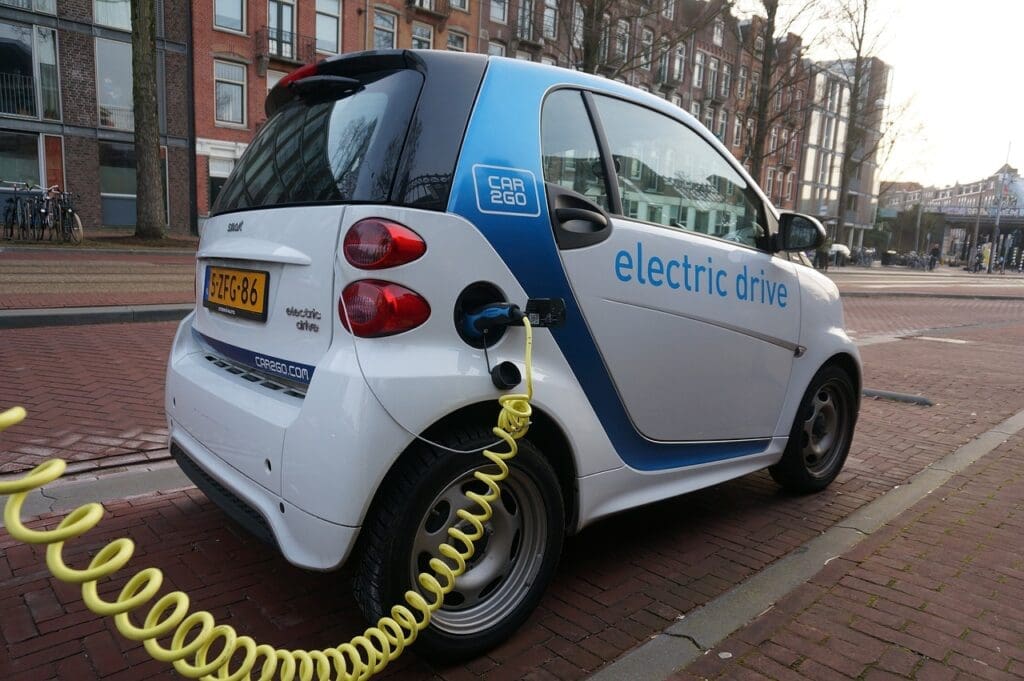
Advantages of a Robust Charging Infrastructure
A robust charging infrastructure offers numerous advantages for electric vehicle owners. It provides peace of mind by ensuring that charging stations are readily available whenever needed. Additionally, a well-developed charging infrastructure allows for shorter charging times, enabling more efficient and convenient long-distance travel. Furthermore, a comprehensive charging network promotes electric vehicle adoption by eliminating barriers associated with range anxiety.
Competitive Landscape in the Electric Vehicle Market
The electric vehicle market is highly competitive, with automakers vying for market share and striving to develop the most innovative and appealing electric vehicle offerings.
Rivalry with Other Automakers
Ford faces fierce competition from other automakers that have also entered the electric vehicle market. Companies like Tesla, General Motors, and Volkswagen are investing heavily in electric vehicle production and have established themselves as key players in the industry. Ford recognizes the need to differentiate itself from its competitors through unique features, superior quality, and a strong brand reputation.
Emergence of New Electric Vehicle Startups
In addition to established automakers, several new electric vehicle startups have emerged in recent years. These startups often focus on disruptive technologies and innovative business models. Ford closely monitors the startup landscape to stay abreast of new developments and identify potential collaboration or acquisition opportunities.
Ford’s Strategy to Stay Ahead in the Market
To stay ahead in the competitive electric vehicle market, Ford focuses on innovation, customer satisfaction, and strategic partnerships. The company puts significant effort into developing cutting-edge electric vehicle technologies, designing attractive and versatile electric vehicle models, and ensuring a seamless ownership experience for its customers. Additionally, Ford actively seeks opportunities to collaborate with other industry players, startups, and technology companies to leverage their expertise and accelerate its electric vehicle strategy.
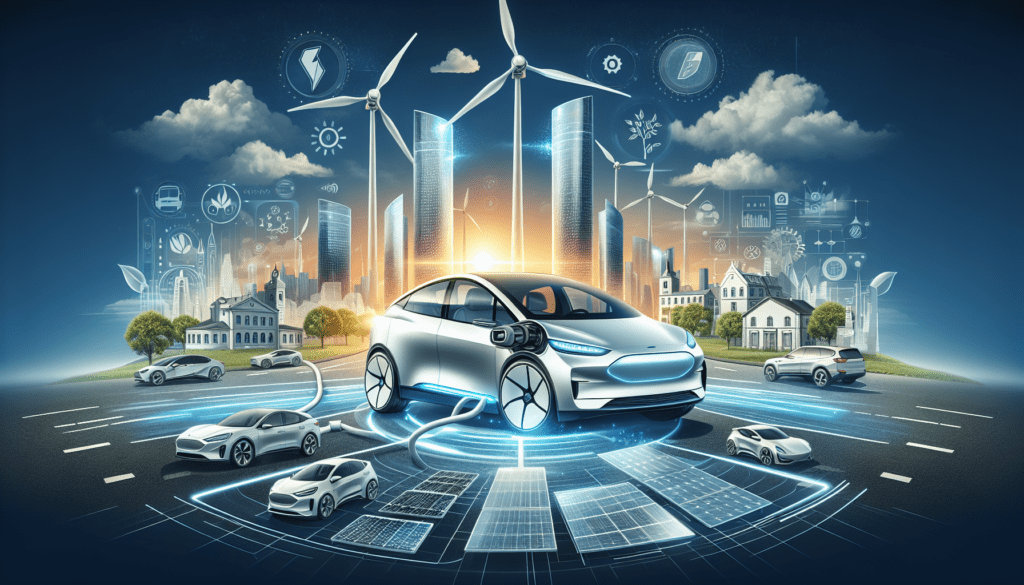
Environmental Benefits of Electric Vehicles
Electric vehicles offer numerous environmental benefits that make them a more sustainable transportation option.
Reduced Greenhouse Gas Emissions
One of the most significant environmental benefits of electric vehicles is the reduction of greenhouse gas emissions. Electric vehicles produce zero tailpipe emissions, resulting in a significant reduction in carbon dioxide and other greenhouse gases that contribute to climate change. By transitioning from traditional internal combustion engines to electric vehicles, we can make a substantial positive impact on the environment.
Improvement in Air Quality
In addition to reducing greenhouse gas emissions, electric vehicles also contribute to cleaner air quality. Electric vehicles do not emit pollutants, such as nitrogen oxides and particulate matter, that contribute to air pollution and negatively affect public health. By replacing conventional vehicles with electric vehicles, we can improve air quality in urban areas and reduce the prevalence of respiratory diseases.
Positive Impact on Climate Change
The transportation sector is one of the largest contributors to global greenhouse gas emissions. By increasing the adoption of electric vehicles, we can significantly reduce the sector’s carbon footprint and mitigate the effects of climate change. Ford’s commitment to electric vehicle production plays a crucial role in driving the transition to cleaner and more sustainable transportation, thereby positively impacting the fight against climate change.
The Role of Ford in Sustainability Initiatives
Ford is deeply committed to corporate responsibility and sustainability. The company actively engages in various initiatives and collaborations to promote environmental protection and sustainability within the automotive industry.
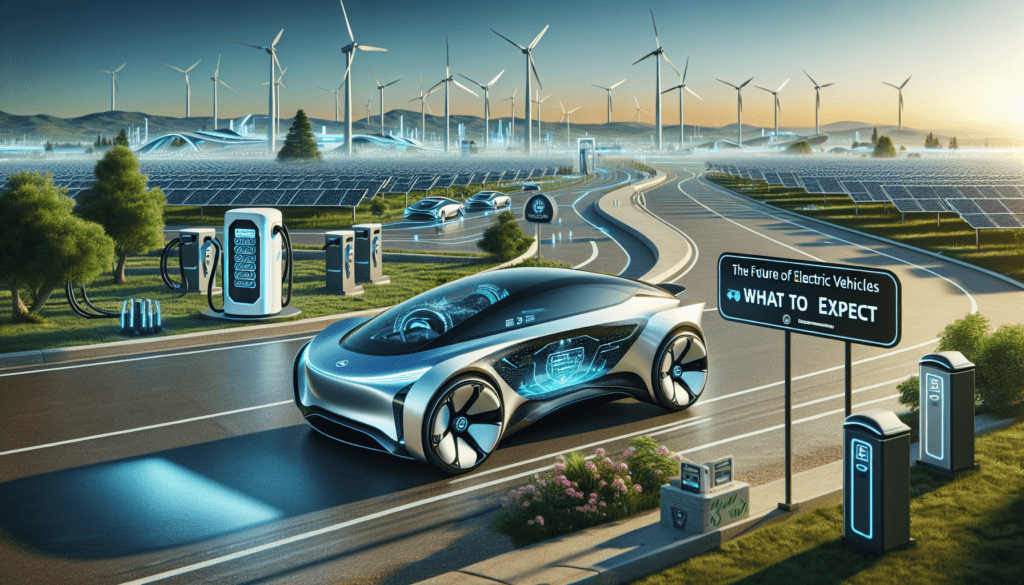
Corporate Responsibility and Sustainability Goals
Ford has set ambitious sustainability goals aimed at reducing its environmental impact. These goals encompass key areas such as carbon neutrality, water conservation, and waste reduction. By integrating sustainability principles into its operations, Ford aims to be a leader in corporate responsibility and contribute to a more sustainable future.
Collaborations with Environmental Organizations
Ford collaborates with environmental organizations to gain insights, expertise, and guidance on sustainable practices. By partnering with organizations focused on environmental protection and sustainability, Ford can leverage their knowledge to develop and implement initiatives that further advance its sustainability goals.
Integration of Sustainable Materials in Vehicle Production
Ford is committed to incorporating sustainable materials in vehicle production. The company actively explores innovative materials and manufacturing processes that minimize environmental impact. By using recycled materials and renewable resources, Ford aims to reduce the carbon footprint associated with its vehicles while maintaining high standards of safety, quality, and durability.
Consumer Expectations and Preferences
Consumer demand for electric vehicles has been steadily increasing, fueled by greater environmental awareness and the desire for more sustainable mobility options.
Increasing Demand for Electric Vehicles
Consumers are increasingly recognizing the environmental and economic benefits of electric vehicles. As awareness grows, so does the demand for electric vehicles. Ford recognizes this changing consumer landscape and is committed to meeting the growing demand for sustainable transportation solutions.
Desire for Affordable Options
Affordability is a major consideration for many consumers when purchasing a new vehicle. Ford understands the importance of offering electric vehicles at competitive prices. By optimizing its production processes, leveraging economies of scale, and taking advantage of government incentives and subsidies, Ford aims to make electric vehicles more accessible and affordable for a broader range of consumers.
Preference for Advanced Features and Technology
Consumers expect electric vehicles to offer not only environmental benefits but also cutting-edge features and technology. Ford recognizes this preference and continually strives to integrate advanced features and technology into its electric vehicle lineup. From state-of-the-art connectivity features to advanced driver-assistance systems, Ford aims to provide a superior ownership experience that exceeds customer expectations.
Challenges Faced by Ford in Electric Vehicle Manufacturing
While the electric vehicle market presents numerous opportunities, it also poses unique challenges for automakers like Ford.
Upfront Costs and Investments
The transition to electric vehicle manufacturing requires significant upfront costs and investments. Developing new electric vehicle platforms, establishing charging infrastructure, and upgrading manufacturing facilities all require substantial financial resources. Ford is committed to making these investments to stay competitive in the market, but managing the upfront costs poses a challenge.
Supply Chain Challenges for Batteries and Components
The global supply chain for electric vehicle components, particularly batteries, faces challenges in meeting the growing demand. The production capacity for batteries must expand to keep pace with the increasing adoption of electric vehicles. Ford actively collaborates with battery manufacturers and suppliers to secure a stable supply chain for batteries and other critical components.
Educating and Training Dealerships for Selling Electric Vehicles
As electric vehicles become more prevalent, dealerships play a crucial role in educating consumers and promoting the adoption of electric vehicles. Ford understands the importance of equipping its dealership network with the necessary knowledge and skills to effectively showcase and sell electric vehicles. The company invests in training programs to ensure that dealerships are well-prepared to meet the needs of electric vehicle customers.
Conclusion
Ford’s commitment to the future of electric vehicles is evident in its comprehensive electric vehicle strategy. The company is dedicated to developing and producing electric vehicles that offer increased performance, longer range, and faster charging capabilities. By investing in charging infrastructure, partnering with charging network providers, and collaborating with environmental organizations, Ford aims to shape a sustainable and greener future. As consumer demand for electric vehicles continues to rise and governments implement policies to promote sustainable transportation, Ford’s electric vehicles will play a significant role in transforming the automotive industry and reducing environmental impact. With a focus on innovation, customer satisfaction, and strategic partnerships, Ford is well-positioned to stay ahead in the competitive electric vehicle market and redefine the future of mobility.

